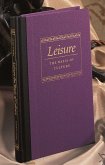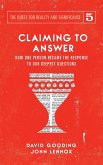"Humor enriches our lives, but it can also raise moral trouble. Is humor that relies on deception, maliciousness, or stereotyping always immoral? Does motive matter in determining the moral value of a joke? Why are certain topics out of bounds for humor? In Wisecracks, philosopher David Shoemaker delves into the fascinating relationship between humor and morality in our everyday lives. In this book, Shoemaker sets aside the crafted forms of humor we find in comedy specials, TV skits, and more and focuses on the informal, improvised wit that occurs in interpersonal relationships-such as teasing, mockery, and pranks-known as wisecracks. The key difference between wisecracks and jokes? Jokes are told, whereas wisecracks are made. Sometimes wisecracks involve lying, sometimes they are mean, and sometimes they play on racial or sexual stereotypes. Shoemaker untangles the intricate threads of when and why these immoral qualities are or aren't acceptable in humor. In showing how a well-developed sense of morality is central to a good sense of humor (and how to develop each), Wisecracks makes the case for how humor can heal, even when it takes a hurtful form"--
Hinweis: Dieser Artikel kann nur an eine deutsche Lieferadresse ausgeliefert werden.
Hinweis: Dieser Artikel kann nur an eine deutsche Lieferadresse ausgeliefert werden.








